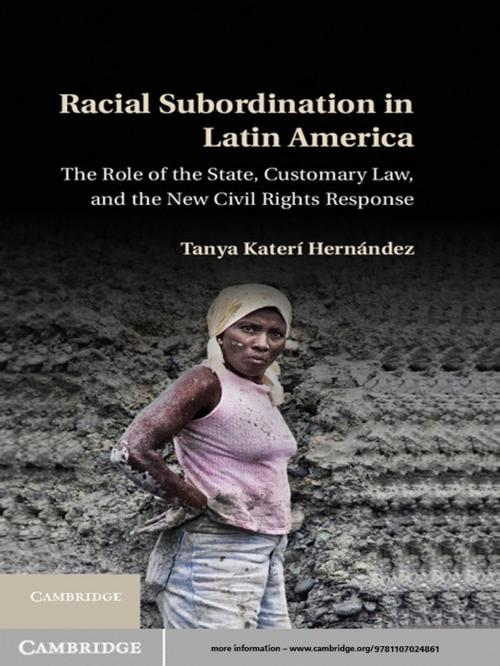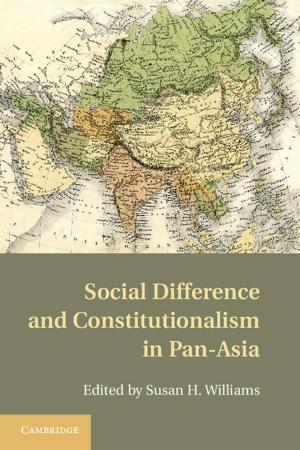Racial Subordination in Latin America
The Role of the State, Customary Law, and the New Civil Rights Response
Nonfiction, Reference & Language, Law| Author: | Tanya Katerí Hernández | ISBN: | 9781139794183 |
| Publisher: | Cambridge University Press | Publication: | October 8, 2012 |
| Imprint: | Cambridge University Press | Language: | English |
| Author: | Tanya Katerí Hernández |
| ISBN: | 9781139794183 |
| Publisher: | Cambridge University Press |
| Publication: | October 8, 2012 |
| Imprint: | Cambridge University Press |
| Language: | English |
There are approximately 150 million people of African descent in Latin America yet Afro-descendants have been consistently marginalized as undesirable elements of the society. Latin America has nevertheless long prided itself on its absence of US-styled state-mandated Jim Crow racial segregation laws. This book disrupts the traditional narrative of Latin America's legally benign racial past by comprehensively examining the existence of customary laws of racial regulation and the historic complicity of Latin American states in erecting and sustaining racial hierarchies. Tanya Katerí Hernández is the first author to consider the salience of the customary law of race regulation for the contemporary development of racial equality laws across the region. Therefore, the book has a particular relevance for the contemporary US racial context in which Jim Crow laws have long been abolished and a 'post-racial' rhetoric undermines the commitment to racial equality laws and policies amidst a backdrop of continued inequality.
There are approximately 150 million people of African descent in Latin America yet Afro-descendants have been consistently marginalized as undesirable elements of the society. Latin America has nevertheless long prided itself on its absence of US-styled state-mandated Jim Crow racial segregation laws. This book disrupts the traditional narrative of Latin America's legally benign racial past by comprehensively examining the existence of customary laws of racial regulation and the historic complicity of Latin American states in erecting and sustaining racial hierarchies. Tanya Katerí Hernández is the first author to consider the salience of the customary law of race regulation for the contemporary development of racial equality laws across the region. Therefore, the book has a particular relevance for the contemporary US racial context in which Jim Crow laws have long been abolished and a 'post-racial' rhetoric undermines the commitment to racial equality laws and policies amidst a backdrop of continued inequality.















